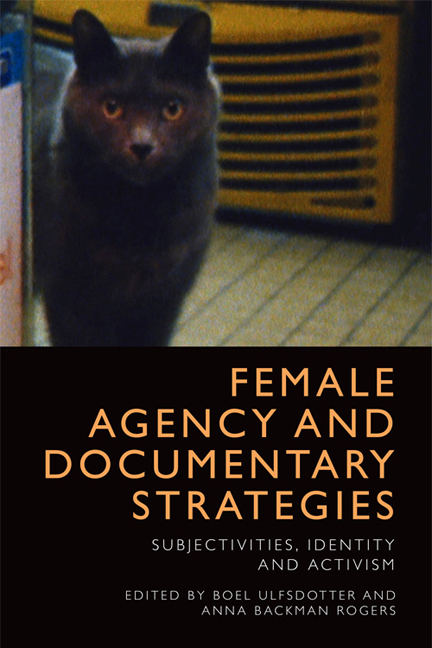5 - Hybrid Practices and Voice Making in Contemporary Female Documentary Film
Published online by Cambridge University Press: 28 April 2021
Summary
INTRODUCTION
The voice is elusive. Once you’ve eliminated everything that is not the voice itself – the body it houses, the words it carries, the notes it sings, the traits by which it defines a speaking person, and the timbres that colour it, what's left? What strange object, what grist for poetic outpourings?
Voice has been written about from various perspectives in documentary, from Nichols's conceptualisation of the ‘voice of documentary’ to situating it as a social function in enabling the previously unrepresented a measure of agency. In documentary film, voice can also refer to modes of address in narration or how interviews are used. Underpinning many of these ideas around voice have been gendered concerns about who speaks, who is spoken of and how the speaking occurs, revealing issues of representation, identity and power.
The concept of voice continues to be, as Chion muses, a ‘grist for poetic outpourings’ not least because of its inability to be fully grasped and defined. More recent theories of voice have continued to explore and dissect meaning and ontologies around ideas of collaboration as well as a focus on process-orientated documentary theory. With these ideas in mind, and taking the concept of voice to be both nebulous, and situated across film theory and filmic strategies, I wish to study both sites of the ‘voice of the participant’ and the ‘voice of the film’. Underlying this examination are questions pertaining to how we might think about voice as representative of more collaborative and reflexive modes of filmmaking, and how this allows documentary subjects to participate in the construction of their (self) representation.
Drawing on a genealogy of both theories around voice and practices of female documentary filmmaking, this chapter focuses on a range of filmmaking techniques that challenge the concept of documentary authority in constructing voice. In distinguishing between various methodological approaches taken by female filmmakers concerning the ‘coming to voice’, I will explore how these co-constructed forms contribute to self-representations. We shall see how the strategies used by these filmmakers also highlight elements of how truth, narrative and identity are constructed through the hybrid filmmaking practices used by Gillian Wearing, Clio Barnard, Alma Ha’rel and Carol Morley.
- Type
- Chapter
- Information
- Female Agency and Documentary StrategiesSubjectivities, Identity and Activism, pp. 70 - 83Publisher: Edinburgh University PressPrint publication year: 2018



